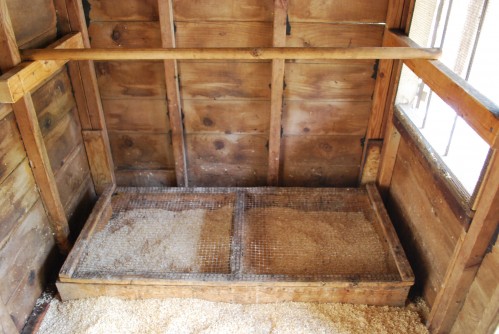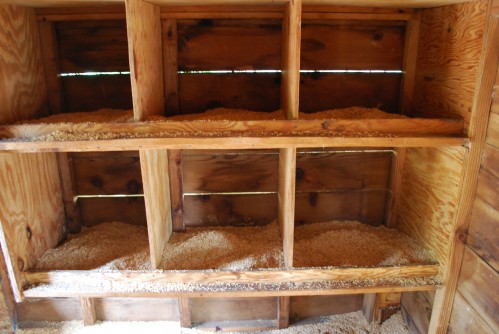Clean as a Whistle
 Don't you wish sometimes you could freeze time? Like after you have just finished deep-cleaning your chicken coop. All the cobwebs are swept away, all of the old bedding has been removed, dust and dirt has been vacuumed out, and the entire chicken coop has been sprayed with Orange Guard.
Don't you wish sometimes you could freeze time? Like after you have just finished deep-cleaning your chicken coop. All the cobwebs are swept away, all of the old bedding has been removed, dust and dirt has been vacuumed out, and the entire chicken coop has been sprayed with Orange Guard.
New bedding has been placed back into the coop, and it is the small window of time--the moment when your chicken coop is as clean as it will ever be before the next needed deep cleaning. Soon enough, the stampede of your flock rushes back in to take over their beloved coop and territory once again. It is always a moment to pause.
 Don't forget about deep cleaning the nesting boxes, too. Keeping your nesting boxes clean, and with clean bedding makes for happy hens. I mention in my new book, Gardening with Free-Range Chickens For Dummies (For Dummies (Home & Garden))
Don't forget about deep cleaning the nesting boxes, too. Keeping your nesting boxes clean, and with clean bedding makes for happy hens. I mention in my new book, Gardening with Free-Range Chickens For Dummies (For Dummies (Home & Garden))
Orange Guard is a great product that is safe for use around your pets, chickens, and chicken coop. You can safely use it on ant trails that can invade your home this time of year. I buy my Orange Guard at Ace Hardware, or search the store locator on Orange Guard. It successfully repels bugs such as fleas, ants, roaches, and mites that might harbor in cracks and hard to reach surfaces. It is a contact killer that suffocates insects by destroying their waxy respiratory lining. It is meant to be sprayed on surfaces until it saturates the surface. Orange Guard is not meant to be applied to animals directly, such as chickens. Do not apply it to water directly either as it can be hazardous to aquatic invertebrates.
When applying Orange Guard, I have my chickens free-ranging in my garden and away from their coop I am cleaning. After applying Orange Guard, I let my chicken coop air out for a minimum of an hour. I usually purchase the large 128 fluid ounce size. The handy spray nozzle that comes with this size doesn't always work very well, and I often have to use Orange Guard in a smaller spray bottle. Ideally, I clean my coop on a warm sunny day, when I can be in the garden and my chickens can happily free-range for at least half a day.
If you see actual bugs on your chickens, such as fleas, lice, and mites there is a safe non-toxic product called Poultry Protector by MannaPro. Poultry Protector is not meant to be sprayed into eyes. Poultry Protector can be found at most feed stores or online. Always follow the recommended instructions on the label. For chickens that have mites or fleas around their eyes, spray Poultry Protector in a clean non-porous container and dab clean Q-tips with Poultry Protector, gently around the eye area--avoiding getting anything in your chickens' eyes.
With the rising popularity of backyard flocks and raising chickens, there are more and more safe and non-toxic environmentally safe products to use around your chicken coop and on your chickens. Always follow the specific directions on product labels to ensure correct application and usage of product.
Please share how you deep-clean your chicken coop. Please comment on non-toxic environmental safe products you use around your chicken coop and on your chickens.
